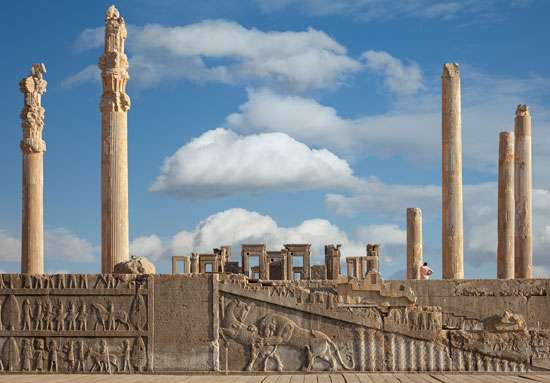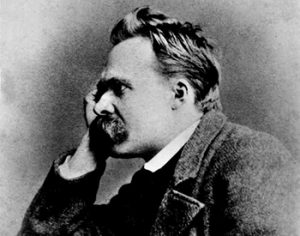
Persepolis
I am sometimes known as an independent philosopher, meaning one outside the academic sector. My citizen curriculum has permitted me a degree of freedom in study pursuits and writings.
My early studies included Zoroastrianism, an ancient Iranian religion frequently debated by specialist scholars. I have recently updated one of my manuscript articles as the first item on a new website. See Zarathushtra and Zoroastrianism (2009).
The legendary ancient prophet Zarathushtra was known to the Greeks as Zoroastres, a name later becoming Zoroaster in more familiar European parlance. There are two basic versions of Zarathushtra: the conventional Zoroastrian portrayal, and the Greek extensions and fantasies facilitated by the Macedonian conquest. Scholars generally favour the former, the latter being considered unreliable.
Classical writers of the Greek and Roman worlds confused Zarathushtra with astrology and magic. These very misleading preoccupations accompanied Greek enthusiasms about the still basically obscure magi of the Zoroastrian priesthood. However, the ancient prophet of Iran was also tagged by Greek sources as the “first philosopher.” The accuracy of this theme is open to question; the proposal is difficult to decisively negate in view of a lack of historical detail. “Classicists have tended to treat the philosophical attribution flippantly” (Shepherd, Minds and Sociocultures Vol. One, Cambridge 1995, p. 234).
The history of philosophy conventionally begins with the era of Thales and Pythagoras. The Iranian prophet may have substantially antedated such figures, and likewise Persepolis, a ceremonial centre of the Achaemenian era, located in the Fars province of West Iran.
Pythagoras also became legendary, at what appears to have been an early stage in the Pythagorean cycle of reference. Philosophy in those times was nothing like the contemporary format now visible. Empedocles has been described in terms of combining “the temperament of a prophet” with a scientific disposition (F. M. Cornford, From Religion to Philosophy, London 1912, repr. Princeton University Press, 1991, p. 150).
Different modern reconstructions of Zarathushtra are available. A closely related subject is the Gathas, verse compositions in ancient Avestan. These display an intricacy evoking arguments as to meaning and context. There is also an elaborate legend in the Zoroastrian sources; this too has received differing assessments.

Friedrich Nietzsche
Such reconstructions are quite different to the idiosyncratic presentation of Friedrich W. Nietzsche (1844-1900) in his Also Sprach Zarathustra (Thus Spoke Zarathustra). Being familiar with philology, Nietzsche correctly employed the antique Iranian name in preference to the far more widely used designation of Zoroaster. However, his “prophet” projection amounted to a philosophical novel about supposed self-mastery relating to his disputed concept of “superman.”
Nietzsche was antagonistic to the Judaeo-Christian worldview, a preoccupation which strongly coloured his writings. Nietzsche declared the death of God, making clear that he was concerned to negate the moralism of the archaic Zarathushtra, who was to him a mouthpiece for atheistic philosophy. Another contradiction is that Nietzsche was not a superman, but instead suffered insanity in his final years.
Also Sprach Zarathustra (1883-85) appeared during the decade when Nietzsche was an independent philosopher after the termination of his academic career. Independence can result in very different orientations and forms of expression.
Kevin R. D. Shepherd
February 1st 2010
ENTRY no. 11
Copyright © 2010 Kevin R. D. Shepherd. All Rights Reserved.

